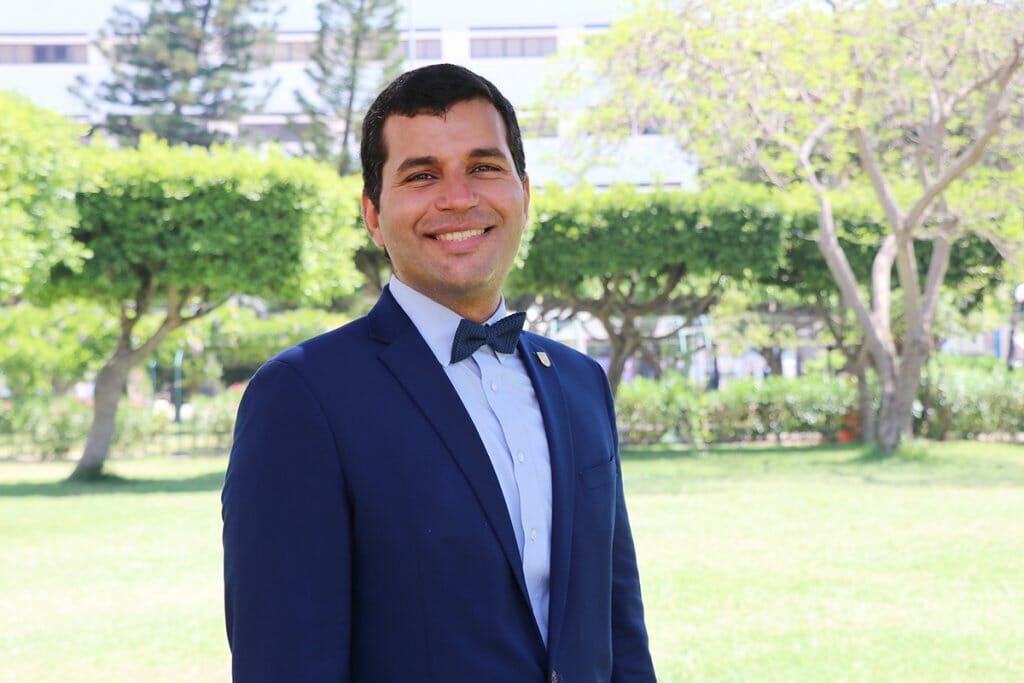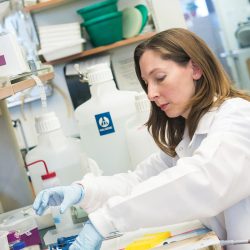
Amin’s RAMCOM helps clinicians guide their patients in adhering to their religious obligations without compromising their health. Layal Fathallah
Every year, nearly 2 billion Muslims observe the month of Ramadan, a period marked by prayer, reflection, and ritual fasting. While spiritually immersive and restorative, the practice can become complicated for people who have health conditions or who take medications that are not conducive to prolonged fasting. When Mohamed Amin PhD’13 started his doctoral studies in the UW School of Pharmacy, he encountered a surprising lack of literature regarding how practitioners can support their Muslim patients during periods of fasting. Today, he’s developed RAMCOM, a tool that helps clinicians guide their patients in adhering to their religious obligations without compromising their health.
Many Islamic religious scholars deem a fast broken by taking a pill with a glass of water. Some individuals believe that eye drops, inhalers, and injections can also nullify a fast. This variation in beliefs makes discussing them all the more important. RAMCOM (short for Ramadan Communication) helps facilitate culturally informed conversations about fasting and empowers patients to broach the subject with providers.
“My research is about giving that voice to someone who hasn’t been very visible in the health care system,” Amin says. “We need to make sure we’re building an environment where a patient feels more comfortable saying, ‘Hey, I’m different, and these are my needs.’ ”
RAMCOM now incorporates fasts from several religions, including Judaism and Hinduism. It made its debut in the School of Pharmacy’s Communication Lab led by professor Betty Chewning MS’71, PhD’73 and run by graduate students Arveen Kaur PhDx’22, Bonyan Qudah PhDx’23, and Marwa Rawy MS’19, PhDx’22.
“Understanding these diverse patient needs and improving our own knowledge on cultural competence and health disparities is an important step for improving health outcomes,” Kaur says.
According to Amin, who is now an associate professor at Egypt’s Alamein International University, RAMCOM is just one example of how pharmacists can serve as accessible points of primary care.
“Pharmacists in different countries underestimate the value of the very brief counseling that they give to patients,” he says. “If we make the best use of pharmacies and pharmacists as resources, we can really take public health interventions to a different scale.”
Published in the Summer 2022 issue



Comments
No comments posted yet.